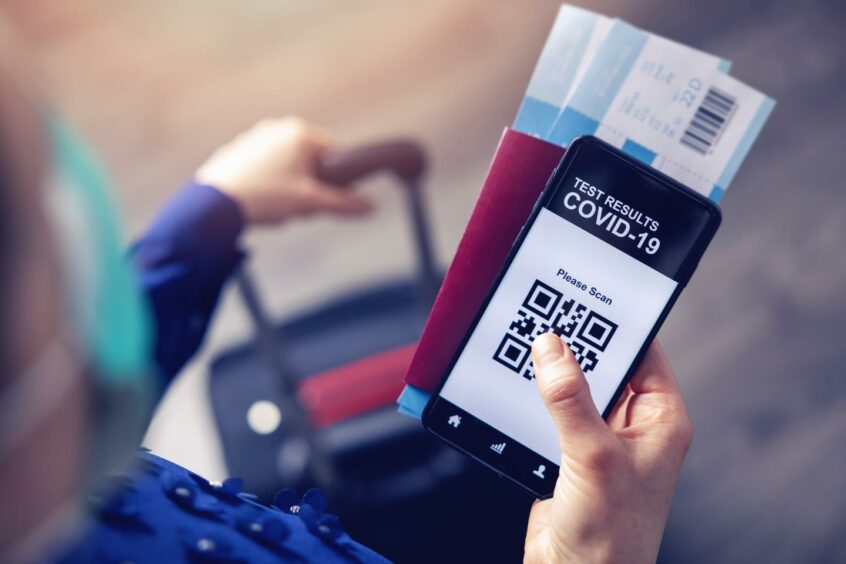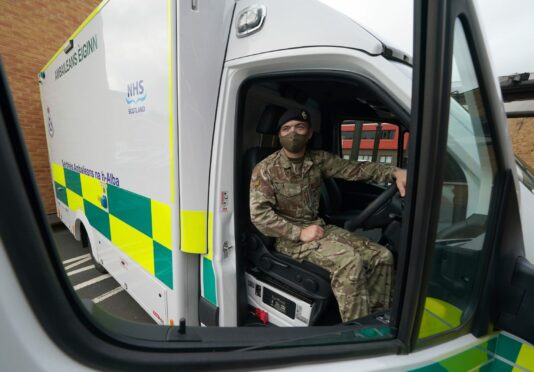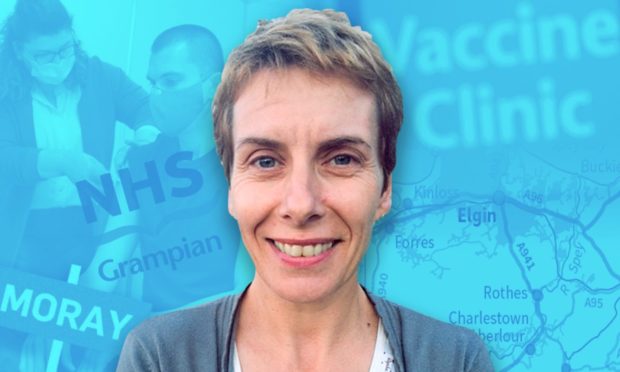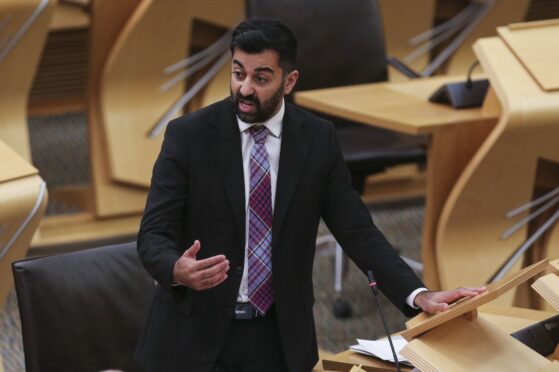NHS Grampian’s head of health intelligence hopes the introduction of Covid passports will drive down “stubbornly high” case numbers.
Enforcement of Scotland’s Covid vaccine passport scheme comes into full effect today.
Proof of having two doses of the vaccine is now required to enter nightclubs and large events.
The scheme, which has faced criticism over the past couple of weeks, is hoped to limit the spread of coronavirus and increase vaccine take-up.
Measures technically came into effect from October 1, but an 18-day grace period was announced following backlash from affected industries and significant problems with the new app.
Speaking to BBC’s Good Morning Scotland, Ms Evans said she believed the key to driving down coronavirus numbers is vaccination and additional protective measures.
She said: “The compliance of mask-wearing in Scotland is very high, some countries that are doing better than the UK are using a lot more protective measures than we are.
“Mask wearing is one of those as is the use of vaccine passports as we are now in Scotland.”
Not out of the woods yet
Since peaking back in September, case numbers have steadily dropped.
However, while numbers across Scotland have levelled out, around 2,500 new cases are still detected each day.
Figures that Ms Evans believes are still “unacceptable.”

She said: “I don’t think we can live with that figure, when you think about the people who are dying from Covid everyday.
“That is not something that I find acceptable, my own area in particular the number of people being admitted to hospital is increasing.
“That figure is counter to falling case rates, which mates me think we aren’t detecting and are underestimating the number of people with the virus.
“You’re quite right in that we are seeing a decline – but we aren’t out of the woods yet – figures are stubbornly high and are plateauing which I think is unacceptable.”
Enforceable across the country
The vaccine passport policy will now be enforceable for nightclubs, strip clubs and unseated indoor events with more than 500 people, unseated outdoor events with more than 4,000 and any event with more than 10,000 people.
Scots will have to show proof they have had both vaccine doses, with a paper copy of the certificate or a QR code on a new app, although the latter has been plagued with problems since its launch.
Councils are responsible for ensuring venues and businesses are checking vaccine status.
Health Secretary Humza Yousaf said: “The grace period allowed venues and businesses affected more than two weeks to test the scheme in practice and make suitable arrangements.
“It has also provided the government with helpful feedback from the sectors affected and we continue to liaise with them going forward.
“This is a very limited scheme and we hope this will allow businesses to remain open and prevent any further restrictions as we head into autumn and winter.
“This virus has not gone away and vaccine certification will have a role to play in keeping transmission under control as part of a wider package of measures.
“It adds a further layer of protection in certain higher-risk settings.
“I also want to ensure that as many people get vaccinated as possible and particularly to increase uptake in the younger age cohort, so anything to incentivise that is helpful.”
Criticism of scheme
While the scheme is now in effect it has not been met with universal praise.
Scottish Labour’s health spokeswoman Jackie Baillie said: “The shambles that followed the release of the vaccine passport app was a predictable disaster.
“Weeks have passed and we have seen no change of plans despite concerns from the public, public health experts and businesses.
“This whole debacle has happened because the SNP are arrogant enough to believe they are right and Scotland is wrong.
“The first minister is making this up as she goes along.
“If we want to control the virus we must look at proper resourcing of our test and protect system which has collapsed in recent weeks.
“If we want to drive up vaccination we should be going door-to-door to convince those we know are hesitant and making it easier to just walk in for an appointment.
“Instead the government is doubling down on this mess.”
Fears surrounding staff shortages in run-up to Christmas
Recently it was announced by the Scottish Government that military personnel would be helping ease the burden placed on several health boards across the country.
Both NHS Borders and NHS Lanarkshire will take on military staff in order to counter workforce shortages and increase the health services capacity.

A move that would be welcomed by NHS Grampian.
Ms Evans added: “I am worried about it, it was very busy over the weekend again and I don’t know how we will deal with or sort that situation out anytime soon.
“We have serious staff shortages, vacancies, people being off due to their holidays and being unwell.
“I think we would welcome military support if that was open to us – I think many other boards would feel the same way.
“Particularly support when it comes to nursing staff, we’re lucky to have a great number of volunteers who help us out with transport needs, but military support would be a huge boost too.”

